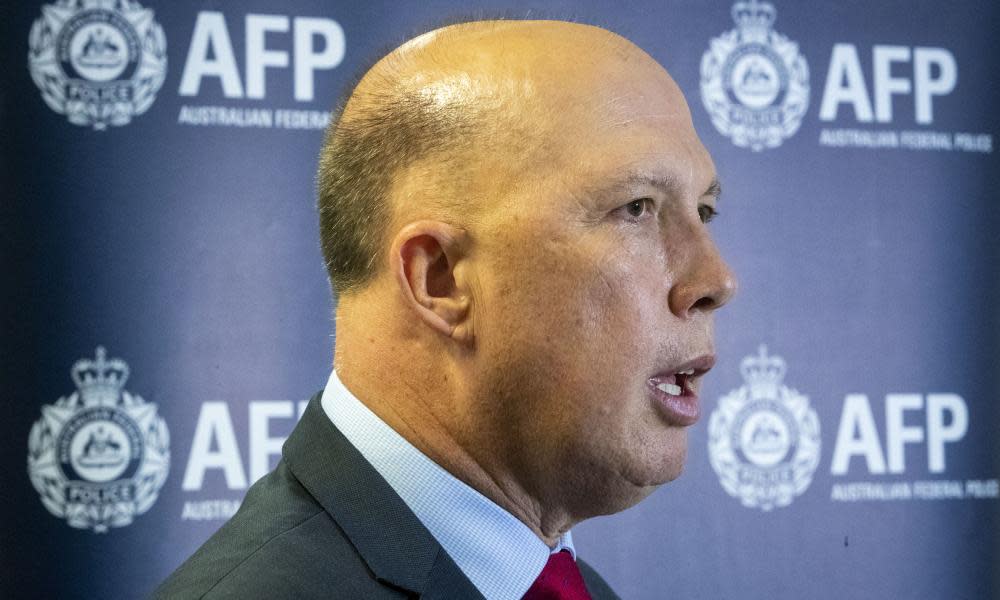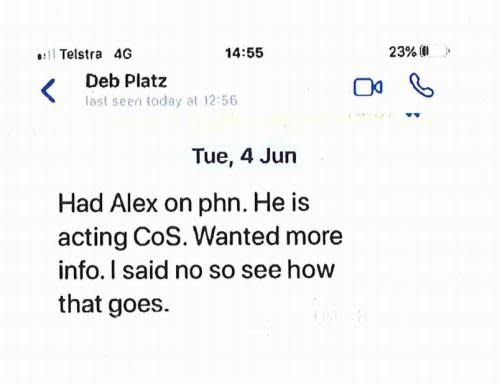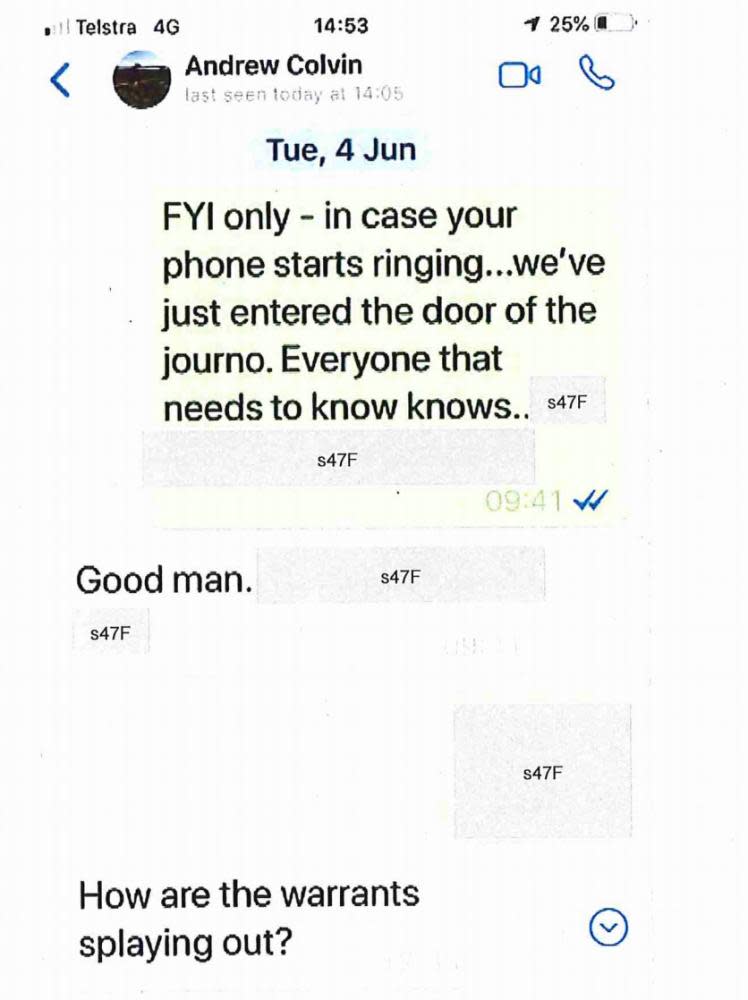Peter Dutton's office sought details on media raids from AFP, but was knocked back

WhatsApp chats obtained by Guardian Australia between Australian federal police officers during recent raids on media outlets have revealed home affairs minister Peter Dutton’s office asked the AFP for more information during the raid on News Corp journalist Annika Smethurst’s apartment but were knocked back.
Under freedom of information law, Guardian Australia sought copies of WhatsApp messages sent by or received by the deputy commissioner, Neil Gaughan, on the dates of the raids on the ABC and Smethurst’s apartment in June. The raids were in response to government leaks.
Related: Annika Smethurst’s lawyers urged to prove confidentiality in AFP raids case
According to the documents released, assistant commissioner Debbie Platz messaged Gaughan on 4 June, the day of the Smethurst raids, to say she “had Alex on [phone]”.
“Wanted more info. I said no so see how that goes,” she said.

It is understood Platz is referring to Alexander Dalgliesh, who is a senior advisor to Dutton and was acting chief of staff at the time of the raids.
The messages strengthen the AFP’s position that it has maintained its independence from government, but reveal the government attempting to get more information out of the AFP on the day of the raid.
Dutton’s office seeking more information, and being rejected by the AFP, came in the same week that Dutton said the AFP’s independence from government was “appropriate”.
“There’s been no interference from the government,” he told 2GB’s Ray Hadley.
“I don’t get notified in the circumstance until the execution of search warrants is taking place, or shortly thereafter, and that’s entirely appropriate because if the government’s directing an investigation or who should be the subject of an execution of a search warrant, then obviously you’d be condemned for that.”
Guardian Australia sought comment from the AFP and Dutton’s office.
In messages to then-commissioner Andrew Colvin, who was on leave at the time of the raids, Gaughan warned Colvin that his phone might start ringing after the AFP “entered the door of the journo”.
Related: Christian Porter asks high court not to destroy material from Annika Smethurst raid
“Everyone that needs to know knows,” he said.
“Good man,” Colvin responded.
Several of the message logs have been fully or partially redacted. It also appears that an emoji may have been redacted from the log in response to one of Colvin’s messages.

Gaughan’s previous text messages obtained under freedom of information included the use of a thumbs-up emoji in response to Dutton’s chief of staff Craig Maclachlan suggesting “this arvo also fine” when being informed about the October 2018 raid on the Department of Home Affairs to take place the next day.
The use of this emoji has been brought up by MPs questioning the AFP over whether it was appropriate for Dutton’s office to be informed about the raids ahead of the police raids over leaks related to the au pairs saga. The AFP has said that following criticism over the home affairs raid, policy had since changed and ministers are not informed ahead of raids.
Gaughan also told Colvin in one message that during the raid, media had only just picked it up in the last hour and “it will be interesting to see how much is said by News Corp”.
Smethurst is challenging the legality of the raid on her apartment in the high court this week, and has sought for the documents obtained by the AFP during the raid to be destroyed. The AFP has been investigating whether Smethurst and her source breached secrecy provisions by publishing part of a classified document revealing a proposal for the Australian Signals Directorate to gain new spying powers.

 Yahoo News
Yahoo News 
